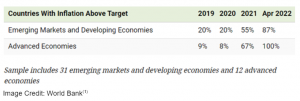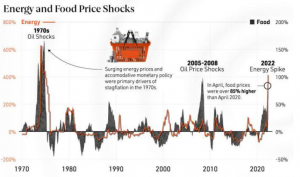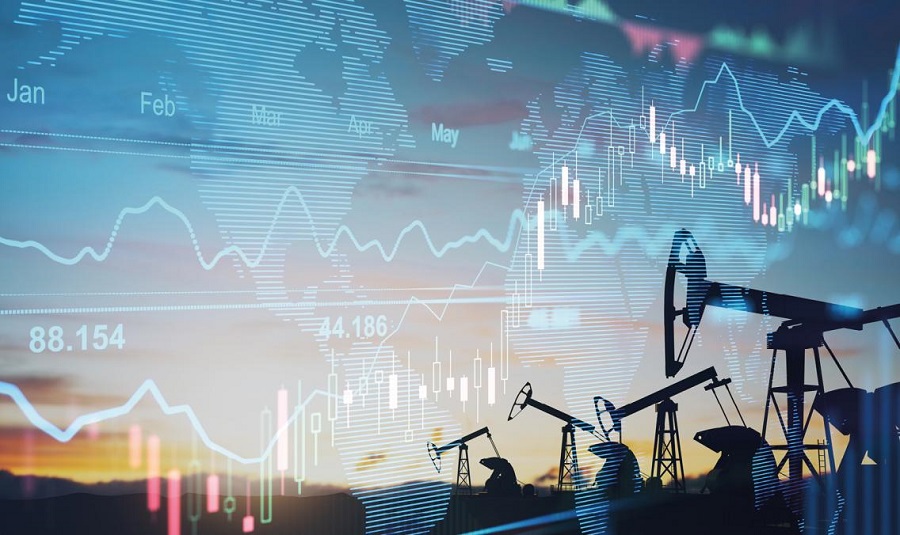Written By: Rassiq Aziz Kabir
Energy prices across the world are going through a massive surge ever since the Russia-Ukraine conflict. Supply shocks arose in this sector, which caused the disruption of the supply of energy, which is virtually affecting every aspect of the global economy, starting from food prices to inflation.
Global inflation has been on the rise ever since the coronavirus pandemic, and this increase in energy prices has made it even worse. Many OECD countries are utilizing their strategic energy reserves in order to minimize the effect of rising energy prices.(1)
During previous energy price shocks, the price of one or two types of fuels increased.But the idiosyncratic feature of the energy crisis of 2022 is that prices have risen across all possible fuels. In many Western European countries, the energy shocks of the past were more or less isolated events, but this time things have completely changed as the price of gas across Europe has hit record highs.(1)
The most devastating consequence of the rise in energy shocks is rising inflation, which in turn might result in hyperinflation for many countries in the world. According to the World Bank, inflation will reach an all-time high in 2022, affecting 100% of advanced countries and 87% of economies on the path to advancement.(1)

Image Credit: World Bank(1)
This is unprecedented ever since the Second World War, and the European economy as a whole has been affected massively. In the month of August 2022, inflation in the Eurozone went up by an all-time high of 9.1 percent, and there is no chance of the condition improving soon as the Russia-Ukraine war doesn’t seem to be concluding in the foreseeable future (2)
The member states of the European Union are responsible for their respective energy policies and, as per the guidelines of the Union, they are expected to take emergency measures to protect consumers from predicaments.
In the last phase of 2021, the rise in energy prices was seen in many parts of the world, although at that time, the impact was quite restricted to the price of a few fuels and it was not as widespread as it is at this particular time. Bangladesh, at that time, for example, underwent a similar situation due to the fact that the state-run Bangladesh Petroleum Corporation had to go through a lot of losses. (3)
This energy price hike, unlike the previous one, is neither restricted to a specific part of the world nor confined to the price of a specific type of fuel, but is all encompassing and is responsible for the economic grievances of most of the world.
Many developing countries in the world have also been affected by the increase in fuel prices as the traditional sources of energy for these countries have been affected. That’s why developing economies have had to endure a lot of inflation, as a lot of these countries directly import oil from Russia. And despite many countries like China and India, which have kept on importing refined oil from Russia, countries such as Bangladesh have been badly impacted. As Bangladesh is not able to import refined oil from Russia directly, the country is expected to depend on India when it comes to Russian oil. (4)

Fig: Energy and Food price shocks (1970-2022)
This crisis, which has been detrimental to the world as a whole, has no easy remedy for it and the situation is not going to go away anytime soon; rather, it would take quite some time to get it normalized, even if measures are taken by the governments in order to curb inflation, which arises due to the rise in energy prices.
As of July 2022, the G7, an alliance of some of the largest economies in the world, proposed a cap on oil prices that is largely dependent on how Russia, China, and India respond to it. If implemented, the cap is very likely to lower global oil prices and the inflation associated with them.(5)
But Russia, one of the largest exporters of energy worldwide, is not going to abide by the proposed cap due to the fact that the very policy is not aligned with their geopolitical scenario at this present moment, as the rise in oil prices is largely responsible for the invasion of Ukraine. (6)
Governments across the world have undertaken many classical macroeconomic measures to offset the inflation that has occurred due to the rise in energy prices. For example, across western Europe, especially in the Netherlands, measures will be undertaken to reduce the value added tax (VAT) on energy and excise duty on petrol and diesel. This is supposedly going to take a lot of the burden from the consumers. Also, classic measures like contractionary monetary policy were undertaken by many countries after the soaring of inflation rates immediately after the pandemic. This measure has yet to be taken by the countries in order to tackle the current peak of inflation, which has occurred due to the rise in oil and energy prices. (7)
The global economy is currently going through one of the worst phases in recorded history, especially when it comes to inflation. Although it would be a magnanimous task to get past the situation in a couple of years, as with all the scenarios of hyperinflation as well as economic downturns of the past, it can be expected that the current situation would not last for a very long time.
Featured Image Courtesy: Caixa Bank Research
References:
1)https://www.weforum.org/agenda/2022/09/inflation-rising-food-energy-prices-economy
3)https://www.thedailystar.net/business/economy/news/energy-price-hike-pushes-inflation-2926426
4)https://www.dhakatribune.com/business/2022/09/21/indian-oil-imports-to-begin-soon
5)https://www.csis.org/analysis/geopolitics-oil-and-inflation
6)https://static.theprint.in/wp-content/uploads/2018/07/cropped-512×512-180×180.png
8)https://www.visualcapitalist.com/inflation-rising-food-energy-prices-impact-economy/
